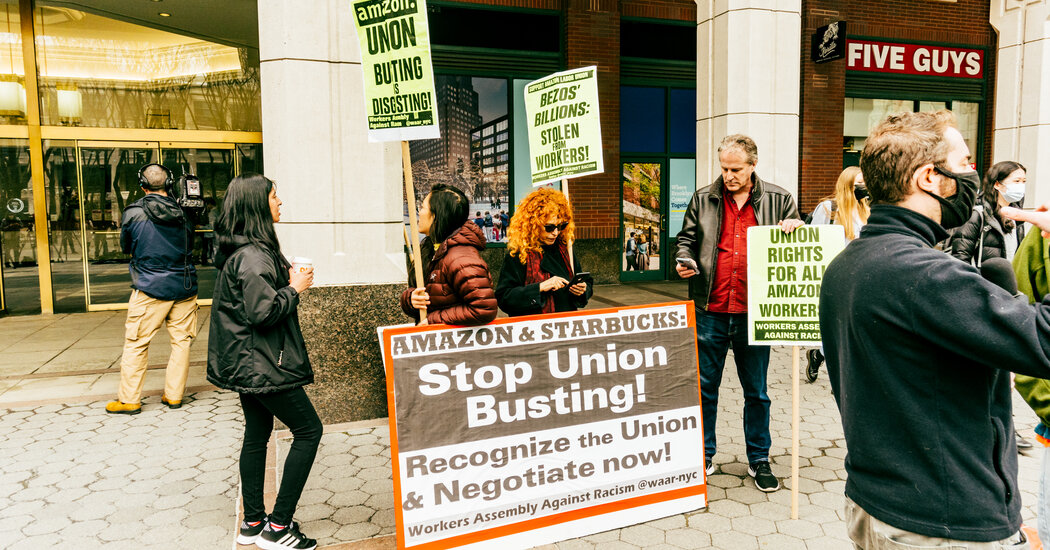The general counsel to the National Labor Relations Board issued a memo Thursday stating that the widespread practice by employers of requiring employees to attend anti-union meetings is illegal under federal law, although labor council precedent has allowed it.
General counsel, Jennifer Abruzzo, who enforces federal labor law by prosecuting violations, said her office would soon file a lawsuit in a case before the labor board, which reviews such questions, and asks the board to set its precedent at its meetings. to undo.
“This authorization to enforce is an anomaly in labor law, in violation of the law protecting workers’ free choice,” Ms Abruzzo said in a statement, referring to the National Labor Relations Act. “I believe that the NLRB’s precedent, which has tolerated such gatherings, violates fundamental labor law principles, our legal language and our congressional mandate.”
In recent months, high-profile employers such as Amazon and Starbucks, faced with growing union campaigns, have held hundreds of meetings trying to convince workers not to join a union by arguing that unions are a “third party” between management would face. and workers.
Amazon officials and consultants have repeatedly told employees in mandatory meetings that they “could get more wages and benefits than they had before the union, the same amount they had or possibly less,” according to NLRB testimony hearing about union elections in Alabama. last year.
The company spent more than $4 million last year on consultants attending such meetings and seeking employees on the warehouse floors.
But many workers and union officials complain that these claims are highly misleading. Union workers typically earn more than comparable non-union workers, and it is highly unusual for pay to fall as a result of a union contract.
Wilma B. Liebman, who headed the Labor Council under President Barack Obama, said it would likely be sympathetic to Ms. Abruzzo’s argument and could reverse its precedent. But Ms. Liebman said it was unclear what practical effect the turnaround would have, as many workers may feel compelled to attend anti-union meetings even when they were no longer required.
“Those on the fence may be reluctant not to attend for fear of retaliation or being singled out,” she wrote by email.
According to a spokeswoman, the council’s regional offices, which Ms Abruzzo oversees, are also likely to file complaints against employers during the meetings. A union, the Retail, Wholesale and Department Store Union, has filed a similar case in Bessemer, Ala., where it recently helped organize workers to unionize for an Amazon warehouse. A tally last week showed union supporters narrowly chased union opponents in that election, but the outcome will depend on several hundred contested votes, whose status will be determined in the coming weeks.
The Labor Council spokeswoman said the outcome of the board’s “lead” case on the mandatory meetings would be binding on the other cases. The case is pending but has not been identified.

